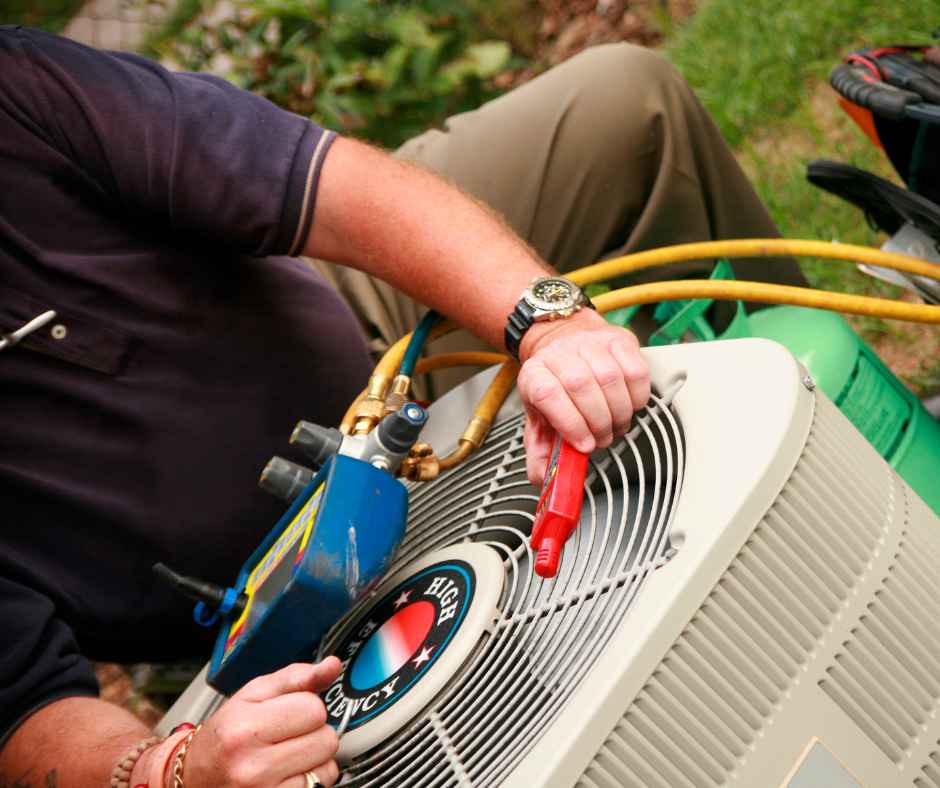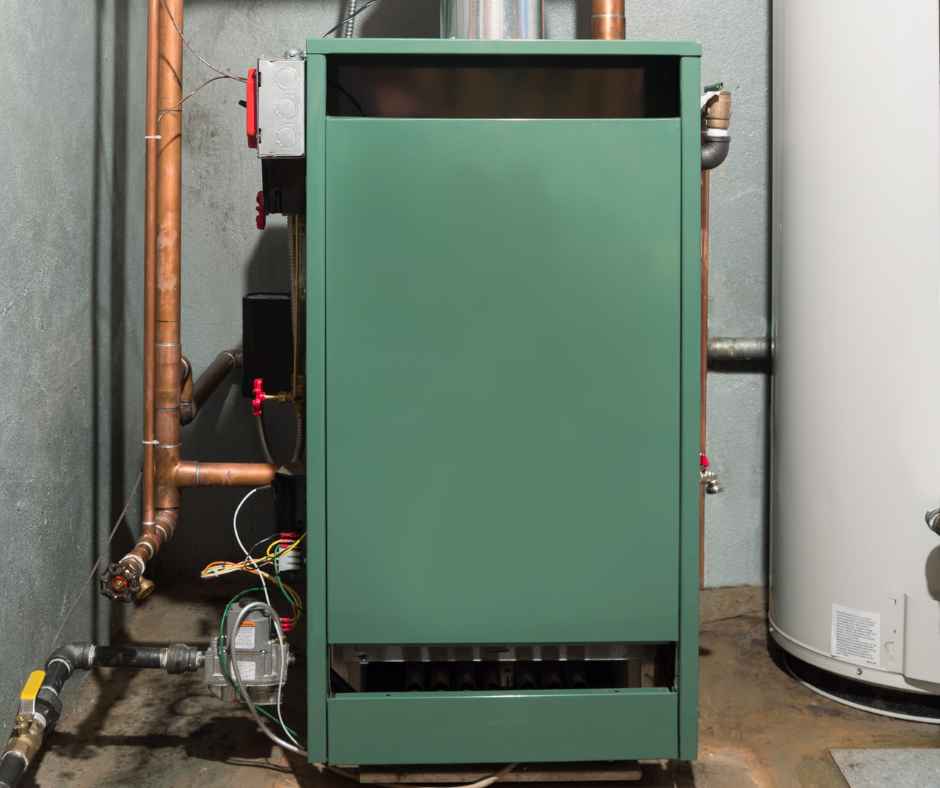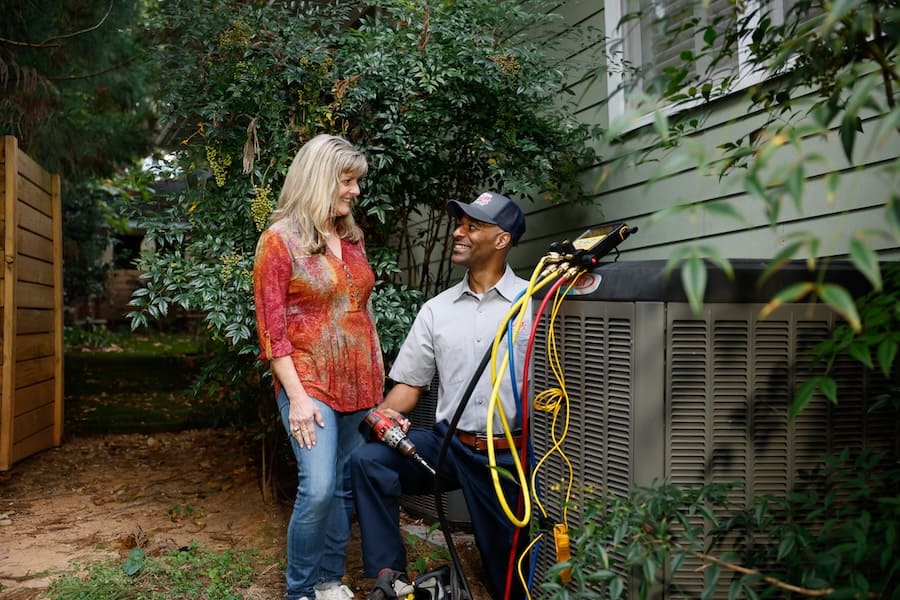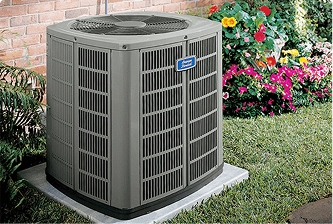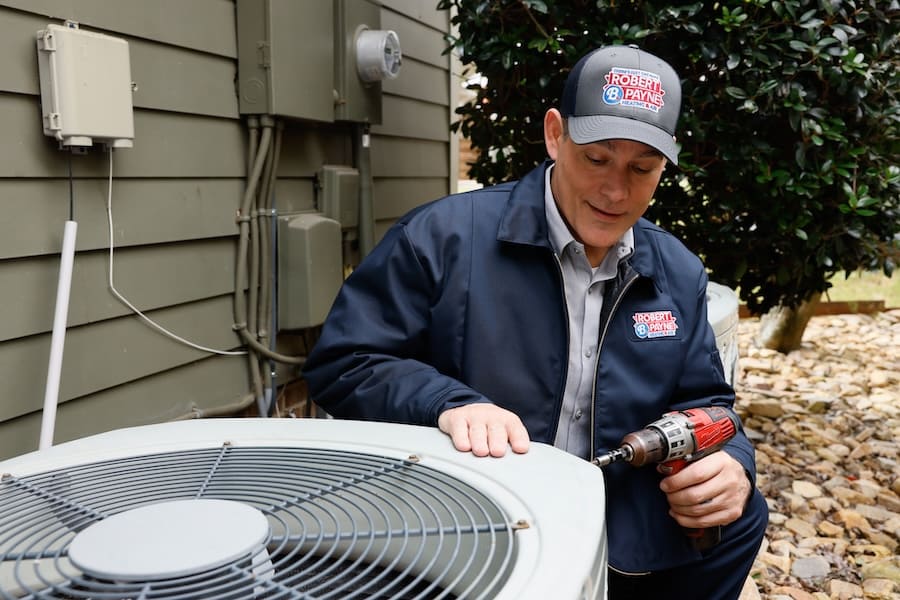If you live in Fredericksburg, you know that summer heat often comes with something even more uncomfortable: humidity. High humidity levels can make your home feel warmer than it actually is, leave the air feeling heavy, and even cause problems such as condensation or mold. Managing indoor moisture is not just about comfort; it also affects your health, energy bills, and the performance of your cooling system.
When humidity gets out of control, your air conditioner works harder, and your home may never feel truly cool. Fortunately, with a few smart adjustments, you can reduce indoor moisture and enjoy consistent comfort all season long.
In this blog, we will share simple humidity hacks for Fredericksburg homeowners that help keep your home cool, dry, and energy efficient. From daily habits to HVAC upgrades, these strategies can make a noticeable difference in both comfort and cost.
Understanding Fredericksburg’s Humid Climate
Fredericksburg’s warm, humid climate creates ideal conditions for moisture buildup inside homes, especially during late spring and summer. Average humidity levels in this region often range between 65 and 80 percent, which means the air holds a significant amount of water vapor. When outdoor humidity is high, it becomes harder for indoor air to stay cool and dry, even with the air conditioner running.
During the summer, Fredericksburg often experiences long stretches of hot days followed by afternoon rain showers. This combination of heat and moisture increases the humidity inside your home. Without proper ventilation or dehumidification, indoor air can start to feel sticky and stagnant.
High humidity also affects how efficiently your cooling system operates. When the air is damp, your air conditioner must work longer to remove moisture and reach the desired temperature. Understanding these local conditions is the first step in managing your home’s indoor comfort and preventing moisture-related problems.
How High Humidity Affects Your Home
When humidity levels climb in your Fredericksburg home, the effects can go far beyond simple discomfort. Too much moisture in the air changes how your home feels, how your cooling system performs, and even how healthy your indoor environment is.
- Reduced Comfort: High humidity makes the air feel warmer than it actually is, causing you to run your air conditioner longer than necessary. This extra usage leads to higher energy bills.
- Mold and Mildew Growth: Moist, stagnant air creates ideal conditions for mold and mildew, which can grow in areas like basements, bathrooms, or around windows. Over time, this can damage surfaces and impact indoor air quality.
- Poor Air Quality: Excess humidity allows dust mites and other allergens to thrive, which can irritate allergies and respiratory conditions.
- Strain on HVAC Systems: When your air conditioner must constantly remove moisture, it works harder and less efficiently. This can increase wear on components and shorten the system’s lifespan.
Maintaining balanced humidity levels keeps your home more comfortable, protects your health, and helps your cooling system operate efficiently throughout the Fredericksburg summer.
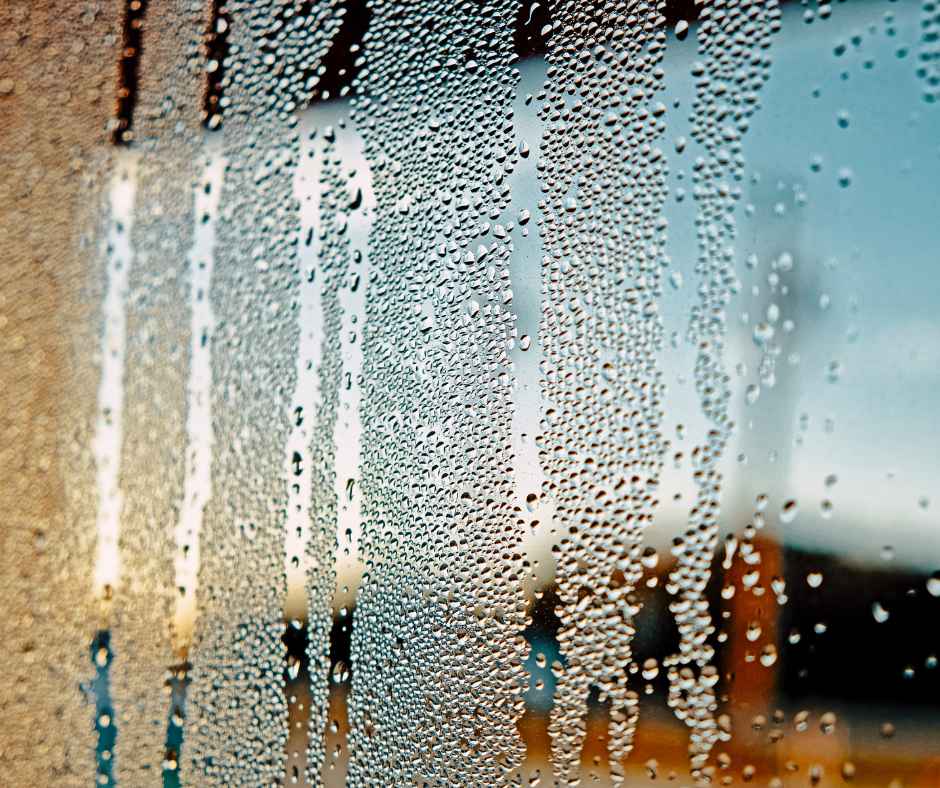
Everyday Habits That Help Reduce Indoor Humidity
Small daily changes can make a big difference in keeping your Fredericksburg home cool and dry. By managing moisture at its source, you can help your air conditioner work more efficiently and prevent the sticky, heavy feeling that comes with excess humidity.
- Use Exhaust Fans: Always turn on exhaust fans while cooking or showering. These fans pull humid air outside before it spreads through your home.
- Ventilate Strategically: Open windows on cooler, less humid mornings or evenings to refresh indoor air. Avoid opening them when outdoor humidity is high.
- Cover Pots While Cooking: Steam adds moisture to the air, so covering pots helps reduce the amount of humidity released into your kitchen.
- Limit Indoor Drying: Avoid air-drying clothes indoors when possible, as this introduces additional moisture.
- Take Shorter, Cooler Showers: Hot showers create steam that raises indoor humidity levels, especially in smaller bathrooms.
Consistently following these simple habits helps control moisture and makes your air conditioning system more effective. Over time, these small steps can noticeably improve comfort and air quality throughout your home.
HVAC and Dehumidifier Hacks for a Cooler Home
Your HVAC system is one of the most effective tools for controlling humidity in your Fredericksburg home. When properly maintained and paired with the right equipment, it can help keep your indoor air cool, comfortable, and balanced.
- Use the “Auto” Fan Setting: Set your air conditioner fan to “auto” instead of “on.” This allows the system to remove more moisture while it cools the air, rather than circulating humid air continuously.
- Keep Coils and Filters Clean: Dust and dirt buildup reduce airflow and limit your system’s ability to dehumidify. Clean or replace filters regularly and schedule professional maintenance at least once a year.
- Add a Whole-Home Dehumidifier: If your home feels damp even with the air conditioner running, a dehumidifier can make a big difference. These systems work alongside your HVAC unit to maintain ideal humidity levels throughout your home.
- Adjust the Thermostat Gradually: Lowering your thermostat slowly helps your system manage both temperature and humidity without overworking.
- Check Drain Lines: Ensure condensate drain lines are clear so moisture can leave the system efficiently.
Combining proper HVAC settings with a dedicated dehumidifier creates a healthier, more comfortable indoor environment during Fredericksburg’s humid summer months.
Sealing and Insulation Tips to Keep Humidity Out
Even the best HVAC system cannot control humidity effectively if outside air constantly seeps into your home. Gaps, cracks, and poor insulation allow warm, moist air to enter, making your cooling system work harder and your home feel less comfortable. Fortunately, a few small improvements can make a big difference.
- Seal Windows and Doors: Apply caulk or weatherstripping around windows, door frames, and baseboards to prevent humid air from leaking inside.
- Inspect Attic and Basement Insulation: In Fredericksburg’s climate, insulation helps regulate both temperature and moisture levels. Make sure insulation in attics, crawl spaces, and basements is properly installed and in good condition.
- Close Gaps Around Pipes and Vents: Small openings around plumbing lines, dryer vents, and wiring can let humid air enter unseen. Seal these with expanding foam or silicone sealant.
- Check for Air Leaks with a Candle Test: On a breezy day, hold a lit candle near doors and windows. If the flame flickers, you may have an air leak that needs sealing.
Sealing and insulating your home improves indoor comfort, reduces humidity, and helps your cooling system run more efficiently throughout Fredericksburg’s humid summer season.
When to Call a Professional for Humidity Issues
Sometimes, humidity problems go beyond what routine maintenance or household habits can solve. If your home still feels damp, sticky, or uncomfortable after trying basic solutions, it may be time to call a professional. Persistent humidity issues can indicate that your HVAC system is not properly sized, maintained, or balanced for your home’s needs.
Here are a few signs you should reach out for help:
- Condensation forming on windows, vents, or walls
- Musty odors that linger in certain rooms
- Visible mold or mildew growth, especially in bathrooms or basements
- Peeling paint, warped flooring, or damp drywall
- A constant feeling of heaviness in the air, even when the air conditioner is running
A licensed HVAC technician can inspect your system, measure indoor humidity levels, and recommend solutions such as duct sealing, airflow adjustments, or dehumidifier installation.
Robert B. Payne offers professional humidity control and air quality services for Fredericksburg homeowners who want to stay cool, dry, and comfortable all year long. With expert guidance and preventive maintenance, you can enjoy cleaner air and improved energy efficiency throughout every season.
Managing Humidity for a Cooler Fredericksburg Home
Keeping your Fredericksburg home cool and dry during humid months is all about prevention and balance. By managing moisture early and maintaining your HVAC system, you can create a healthier indoor environment, lower energy costs, and extend the life of your equipment.
Simple steps like improving ventilation, sealing leaks, and using dehumidifiers can dramatically reduce humidity levels and improve overall comfort. Regular professional maintenance also ensures your system runs efficiently through every season.
If your home still feels sticky or warm even with the air conditioner running, professional humidity control can make all the difference. Robert B. Payne helps Fredericksburg homeowners stay comfortable year-round with expert cooling solutions and air quality care. Schedule your seasonal inspection today.
Frequently Asked Questions About Managing Humidity in Your Fredericksburg Home
What is the ideal indoor humidity level for comfort and health?
The best indoor humidity range is between 40 and 50 percent. This level helps your home feel cooler in summer, prevents mold growth, and supports good air quality.
Can high humidity damage my air conditioner?
Yes. When indoor humidity stays high, your air conditioner works harder to remove moisture, which increases wear on the compressor and coils. Over time, this can reduce efficiency and shorten the system’s lifespan.
Why does my home still feel humid even when the air conditioner is running?
This often happens when the system is oversized, the fan is set to “on,” or air filters are clogged. A professional can inspect your setup and recommend adjustments or dehumidification options.
How do plants affect indoor humidity?
Houseplants release moisture through a process called transpiration. If you notice excess humidity, try moving larger plants outdoors during summer months or reducing their number indoors.
What is the difference between a portable and whole-home dehumidifier?
A portable dehumidifier treats a single room, while a whole-home unit integrates with your HVAC system to control humidity throughout the entire house. Whole-home systems are quieter, more efficient, and require less maintenance.and start enjoying a cooler, more comfortable home.



